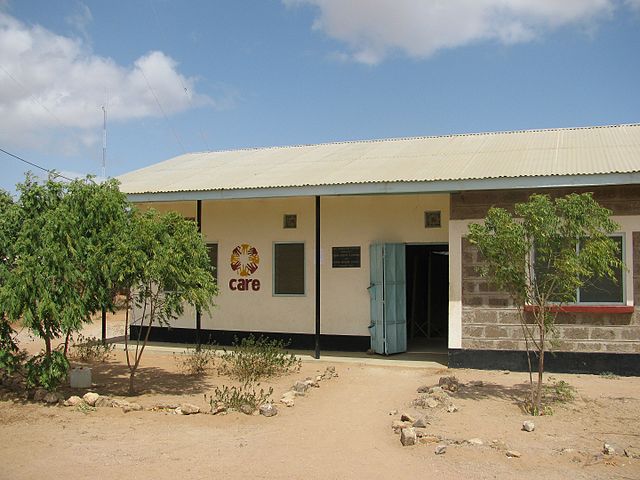Kenya to close refugee camp
March 30, 2019 | Expert Insights

Nairobi plans to shut a refugee camp that is home to nearly a quarter of a million people, mostly Somalis, in the next few months, according to an internal U.N. document.
Background
Kenya is a country in Africa with 47 semiautonomous counties governed by elected governors. At 580,367 square kilometres (224,081 sq mi), Kenya is the world's 48th largest country by total area. With a population of more than 52.2 million people, Kenya is the 27th most populous country. Kenya's capital and largest city are Nairobi while its oldest city and first capital is the coastal city of Mombasa.
Dadaab is a semi-arid town in Garissa County, Kenya. It is the site of a UNHCR base hosting 235,269 registered refugees and asylum seekers in four camps (Dagahaley, Hagadera, Ifo, and Ifo II) as of the end of January 2018, making it the third-largest such complex in the world. The centre is run by the UNHR, and its operations are financed by foreign donors. In 2013, the governments of Kenya and Somalia signed a tripartite agreement facilitating the repatriation of refugees at the complex.
The Dadaab refugee camp complex is so vast that it has been compared to a city, with urban features such as high population density, economic activity, and concentration of infrastructure. Like a typical urban area, Dadaab contains public service buildings such as schools and hospitals.
Analysis
The three-decade-old Dadaab camp in eastern Kenya would be closed by the end of August under the Kenyan plan, says an internal UN document.
A United Nations refugee agency (UNHCR) document dated Feb. 28 said the Kenyan government had sent a note verbale informing it of “plans to close the Dadaab camps within a six-month period.”
The note, which was dated Feb. 19, asked UNHCR “to expedite relocation of the refugees and asylum-seekers residing therein.”
In the document, the UNHCR said it was committed to working with the government on voluntary repatriation to countries of origin, relocating refugees to other parts of Kenya and resettlement to third countries.
An aid worker in Dadaab, speaking on condition of anonymity, confirmed to AFP that all international organizations were aware of a plan to close the camp, but the “government is keeping it low profile.”
Dadaab was considered the world’s largest refugee camp, with at its peak some 580,000 refugees. The largest camp is now Cox’s Bazaar in Bangladesh, home to some 600,000 Rohingya refugees who have fled neighbouring Myanmar.
Dadaab now shelters some 230,000 people, the vast majority of them Somalis who fled across the border following the outbreak of civil war in 1991. Many have lived there ever since.
In May 2016 the government unilaterally decided to close the camp, saying it was a terrorist training ground for al-Shabab Islamist militants based in Somalia. Tens of thousands of refugees returned to Somalia under a repatriation package.
However, many encountered drought, hunger and dire conditions in a country where 5 million lack enough food and where African and Somali forces are still fighting al-Qa-da-aligned Shabab militants.
Amnesty International said it had documented government officials threatening refugees and telling them they had to leave, “raising serious questions about whether returns were voluntary. Then in February 2017, Kenya’s High Court ruled the plan to close the camp was unconstitutional, violated Kenya’s international obligations and amounted to the persecution of refugees.
The court also said the forced repatriation violated the 1951 United Nations Convention on refugees. Since sending troops into neighbouring Somalia in 2011, Kenya has come under repeated attack from al-Qaida-linked Shabab militants.
The government has presented Dadaab as a security risk, saying Somali Islamists inside the camp planned the Shabab attacks at Nairobi’s Westgate shopping mall in 2013 and the Garissa university attack in 2015, though it has not provided evidence.
The latest effort to shut it comes shortly after the January 15 attack on the Dusit hotel and office complex in Nairobi that left 21 dead. At least 12 suspects were arrested in Dadaab in connection with the attack.
Assessment
Our assessment is that the decision to shut down a massive refugee camp will have far-reaching consequences for the UNHCR’s relocation and rehabilitation programs in the region. We believe that the residents of the camp have a right to relocation and quick processing of their status before or even after the camp is removed.
Image Courtesy: globalhealthcsis (https://commons.wikimedia.org/wiki/File:Careyouthcenter.jpg), „Careyouthcenter“, https://creativecommons.org/licenses/by/2.0/legalcode








Comments